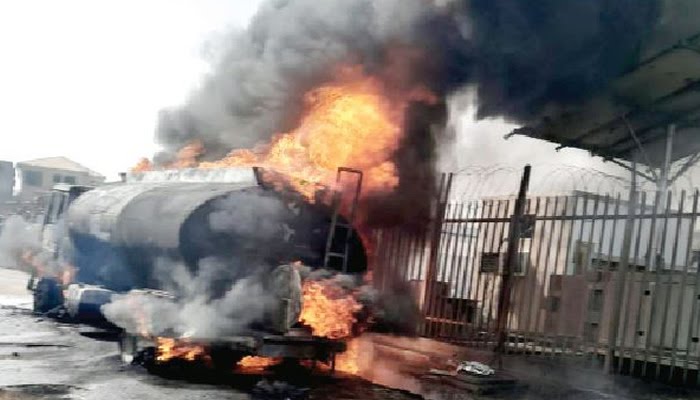The Northern Senators Forum has condemned the petrol tanker explosion that occurred at Dikko Junction in Niger State on January 18, 2025, describing it as a preventable disaster that underscores systemic failures in road safety enforcement.
In a statement signed by its Chairman, Sen. Abdulaziz Musa Yar’adua, the Forum expressed profound grief over the loss of lives and injuries sustained in the incident.
They criticized the apparent lapses in ensuring the roadworthiness of tankers and heavy-duty vehicles, which they said contributed to the calamity.
“This tragedy reflects a broader issue of inadequate safety enforcement on our roads,” the statement read. The Forum called on the Federal Road Safety Corps (FRSC) and other agencies to intensify efforts in regulating and inspecting tankers and trucks to prevent avoidable accidents.
The Senators also decried the dangerous practice of fuel scooping by locals at accident sites, urging Nigerians to prioritize safety over economic desperation in such situations.
In addition to urging stricter road safety protocols, the Forum emphasized the importance of policy reforms to mitigate risks associated with transporting hazardous materials. Sen. Yar’adua pledged that the Forum would work toward legislative interventions to enhance road safety standards and emergency response systems.
The explosion, which claimed numerous lives and caused significant damage, has reignited concerns about the recurring nature of such tragedies in Nigeria.
The Senators offered their condolences to the victims’ families and called for a collective effort to ensure that such a disaster does not happen again.
“We are deeply saddened by this loss. It is both unacceptable and preventable. We stand with the victims’ families and will pursue measures to guarantee safer roads for all Nigerians,” Yar’adua stated.
The incident has spurred calls from civil society organizations and citizens for urgent reforms in Nigeria’s transportation sector. Advocates stress the need for regular vehicle inspections, stricter penalties for non-compliance, and public education on the dangers of fuel scooping.
This tragedy serves as a stark reminder of the pressing need for a robust, collective approach to road safety, ensuring that such calamities become a thing of the past.

